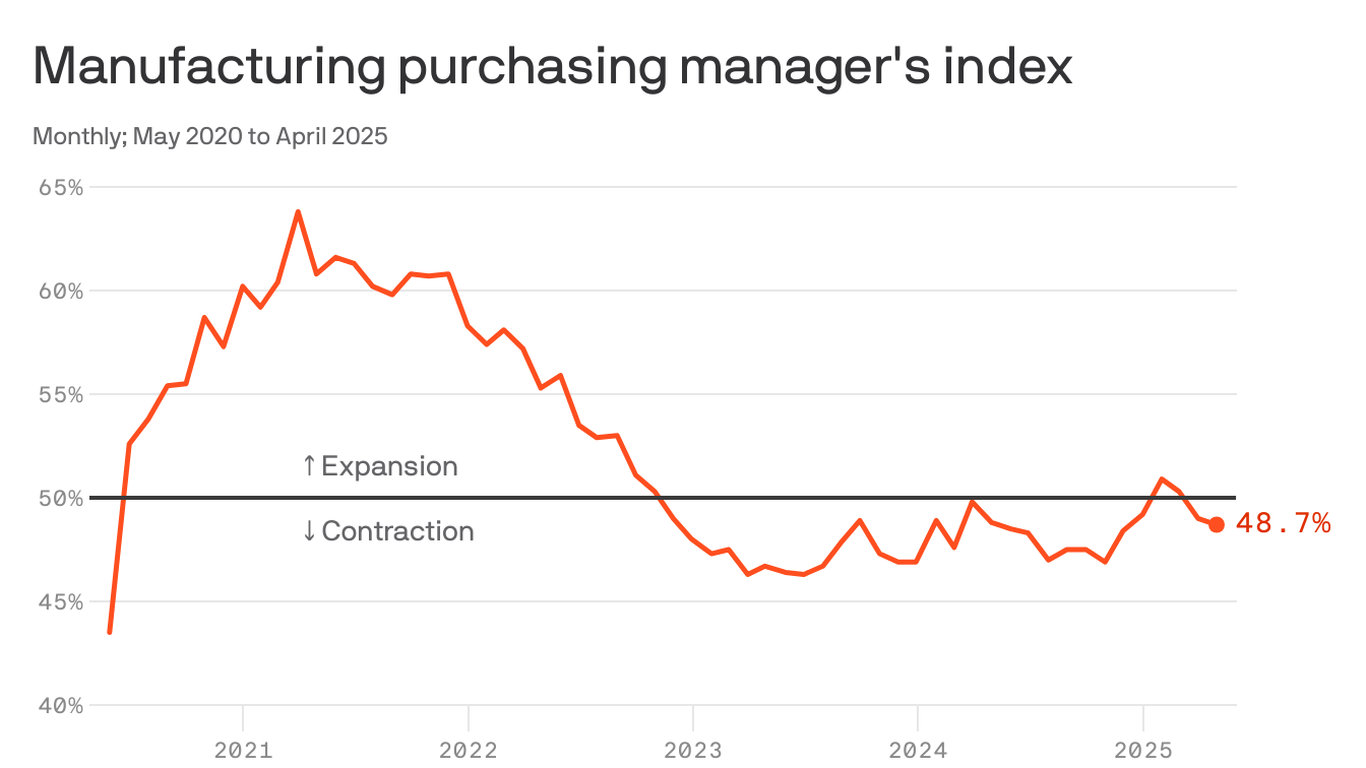Trade War Fallout: U.S. Manufacturing Takes Another Hit

The manufacturing sector is facing a perfect storm of economic challenges, with producers grappling with a series of critical setbacks. Industry leaders are reporting a dramatic decline in production levels, coupled with escalating material expenses that are squeezing profit margins. The situation is further complicated by a significant downturn in both import and export activities, signaling broader economic headwinds.
Manufacturers across various industries are feeling the pinch as production lines slow down and operational costs continue to rise. The combination of shrinking output, increased raw material prices, and reduced international trade is creating a challenging landscape for businesses struggling to maintain their competitive edge. This multifaceted economic pressure is forcing companies to reassess their strategies and seek innovative solutions to navigate the current market turbulence.
